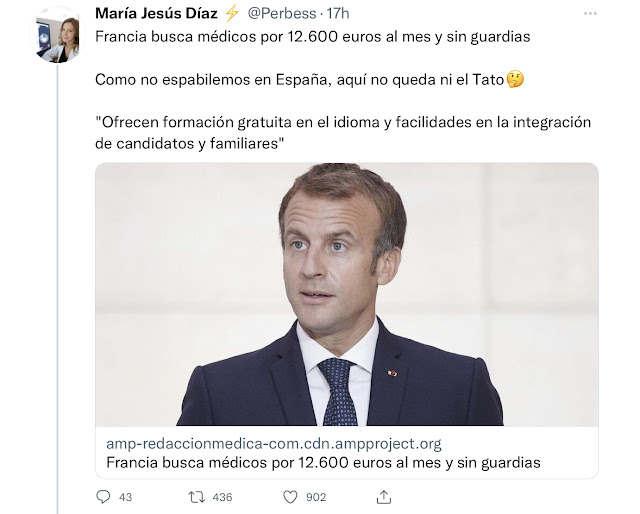
La época de nuestros padres fue la de las bombillas y el neón que transformaron la noche tanto de las ciudades como de los hogares. Una pantalla por familia en el salón y la radio encendida en la cocina. En la nuestra vivimos rodeados de pantallas y el ruido es ensordecedor. Basta mirar pocos segundos un boletín de noticias para estremecerse. Por una parte la distracción es máxima con sus luces permanentemente encendidas y por la otro la oscuridad densísima del miedo y el horror desbocados. Y como no puede ser de otra manera, al ser azuzados con calambrazos de malas noticias y negra incertidumbre, nos lanzamos como locos a una vorágine que nos distraiga de lo que pensamos y sentimos. Preferimos tragar ideas preconcebidas, edulcoradas y convenientemente higienizadas que alguien difuso nos va sirviendo a cucharadas mientras navegamos por nuestras redes sociales y mariposeamos de flor en flor por Internet. O experimentar los placeres templados que nos procura nuestra serie favorita o el influencer de cabecera. Todo antes que enfrentarnos a esa desazón enmarañada de nuestros sentimientos, a esas intuiciones que no nos interesa oír, o al terrible sentimiento de vacío interior que nos espera al final del abismo. Nunca antes habíamos estado tan distraídos, nunca antes habíamos estado tan alejados de nosotros mismos.
Lo que no sabemos es que esto enferma, o dicho con más precisión nos aleja de la salud. Todo el mundo comprende que no es saludable alimentarse solo de hamburguesas del Mc Donalds y que si uno se pasa terminará empachado. Lo que no queremos asumir es que lo mismo ocurre con el banquete cognitivo que nuestras pantallas nos ofrecen a diario con un exceso de información brutal de mala calidad para nuestra frágil salud mental. El cerebro humano está diseñado para pasar el día paseando por el campo buscándonos la vida y no encerrados en una mazmorra mirando unas pantallas. La reclusión nos roba la masa muscular, la forma física y la sensatez. Y no nos permite contactar mínimamente con la sombra dado que la luz, aunque sea artificial, tiene por costumbre eliminar la oscuridad.
La sombra es esa parte oscura que se produce inevitablemente cuando iluminamos un objeto. Carl Gustav Jung se dio cuenta de que en nuestro mundo interior también hay una que se pone de relieve cuando lo recorremos con la vela encendida de la conciencia. Es esa parte densa e impenetrable que nos afanamos en guardar en los fondos de armarios interiores y que a veces clama a patadas por ser liberada de los mismos. Ahí depositamos deseos, anhelos, identidades, sentimientos, ideas, culpas, vergüenzas, dolor, sufrimiento, rechazos… y al permanecer guardado y doblado no permitimos que el sistema de depuración interno lo libere cuando con esfuerzo tiramos de la cadena. Termina produciendo malos olores y agriándonos el ánimo y la esperanza. Al final perdemos la energía y el sentido de la vida por que mantener cerrado un armario que trata de abrirse es muy cansino y no reconocer lo que uno es nos hace perder pie.
Pero ahí estamos con nuestras movidas llenándonos la vista con memes sobre el presidente del gobierno o el último escándalo de Miguel Bosé mientras por dentro nos desangramos y nos negamos a mirar dónde está la herida. Al final el cuerpo o nuestra psicología nos terminan parando, el primero con molestias y síntomas la segunda con ansiedad y tristeza. Y acabamos en el médico de familia pidiéndole una analítica porque nos sentimos agotados. Mientras nos escucha y se da cuenta de la movida suspira profundamente, nos pide la analítica y no nos dice nada porque necesitaría veinte minutos y solo tiene tres para atendernos. Y por que nuestros fangos no pondrán en riesgo nuestra integridad física y a fin de cuentas hemos de ser nosotros los que los depuremos. El problema es que nada ni nadie ayudan. Los demás están también abducidos con sus cosas y pagar un psicólogo para esto no lo solemos ver. Por lo tanto salimos de la consulta con nuestro volante, nos hacemos la analítica cuyos resultados serán perfectos y seguimos dando vueltas a la ruedita, como el ratón en su jaula, a ver si relajamos el mal rollo.
Hasta que no nos llegue una crisis vital de verdad no haremos nada. Da igual que suba la gasolina, persista la ola de calor, estalle una guerra en Crimea o dimita Elvis Presley. Solo reaccionaremos cuando nos sintamos asfixiados, y llegados al caso volveremos al médico de cabecera a pedir alguna pastilla que nos quite el agobio, para poder seguir tirando otro poquito. Y si el facultativo está ese día echando humo nos la extenderá con rapidez para que pueda pasar el siguiente que seguramente esté peor.
Noise and screens
The time of our parents was the time of light bulbs and neon that transformed the night in cities and homes. One screen per family in the living room and the radio on in the kitchen. Nowadays we live surrounded by screens and the noise is deafening. A few seconds of watching a news bulletin is enough to make you shudder. On the one hand there is maximum distraction with the lights permanently on and on the other the dense darkness of unbridled fear and horror. And sure enough, being whipped into a frenzy of bad news and black uncertainty, we are thrown like mad into a maelstrom that distracts us from what we think and feel. We prefer to swallow preconceived, sweetened and conveniently sanitised ideas that someone fuzzy is spoon-feeding us as we browse our social networks and butterfly from flower to flower on the internet. Or experience the tempered pleasures of our favourite series or the influencer of our choice. All before facing the tangled disquiet of our feelings, the intuitions we don't care to hear, or the terrible feeling of inner emptiness that awaits us at the end of the abyss. Never before have we been so distracted, never before have we been so far from ourselves.
What we don't know is that this makes us ill, or more accurately, it makes us unhealthy. Everyone understands that it is unhealthy to eat only burgers from McDonald's and that if you overdo it, you will end up with indigestion. What we don't want to assume is that the same is true of the cognitive banquet that our screens offer us every day with a brutal excess of information of poor quality for our fragile mental health. The human brain is designed to spend the day wandering around the countryside looking for a living, not locked up in a dungeon staring at screens. Seclusion robs us of muscle mass, fitness and sanity. And it does not allow us to make even the slightest contact with the shadow, since light, even artificial light, has the habit of eliminating darkness.
The shadow is that dark part that is inevitably produced when we illuminate an object. Carl Gustav Jung realised that in our inner world there is also one that comes to the fore when we walk through it with the lit candle of consciousness. It is that dense and impenetrable part that we strive to keep in the depths of inner wardrobes and that sometimes cries out to be released from them. There we deposit desires, yearnings, identities, feelings, ideas, guilt, shame, pain, suffering, rejections... and as it remains stored and folded up we do not allow the internal purification system to release it when we effortlessly flush the toilet. It ends up producing bad smells and sours our mood and hope. In the end we lose energy and the meaning of life because keeping a cupboard closed that is trying to open is very tiring and not recognising who we are makes us lose our footing.
But there we are, with our problems, filling our eyes with memes about the president of the government or Miguel Bosé's latest scandal, while inside we bleed to death and refuse to look at where the wound is. In the end the body or our psychology stops us, the former with discomfort and symptoms, the latter with anxiety and sadness. And we end up at the family doctor's asking for a blood test because we feel exhausted. While he listens to us and realises what is going on, he sighs deeply, asks us for the analysis and doesn't say anything because he would need twenty minutes and he only has three to attend to us. And because our sludge will not put our physical integrity at risk and, in the end, we have to be the ones to purify it. The problem is that nothing and nobody helps. The others are also abducted with their own things and we don't usually pay a psychologist for this. Therefore, we leave the consulting room with our paper , we do the analysis whose results will be perfect and we keep turning the wheel, like the mouse in its cage, to see if we can relax the bad feeling.
Until we don't have a real life crisis, we won't do anything. It doesn't matter if petrol rises, the heat wave persists, a war breaks out in Crimea or Elvis Presley resigns. We will only react when we feel suffocated, and if necessary we will go back to the family doctor to ask for a pill to take away the burden, so that we can keep on going for another little while. And if the doctor is fuming that day, he or she will quickly extend it to us so that the next one, which will probably be worse, can pass.
噪声和屏幕
自动翻译,抱歉有错误。
我们父母的时代是灯泡和霓虹灯的时代,改变了城市和家庭的夜晚。客厅里每个家庭一个屏幕,厨房里的收音机开着。在我们的家庭中,我们生活在屏幕的包围之中,噪音震耳欲聋。看几秒钟的新闻公告就足以让你不寒而栗。一方面是灯光常亮的最大限度的分心,另一方面是肆无忌惮的恐惧和恐怖的浓郁黑暗。果然,被坏消息和黑色的不确定性鞭策着,我们像疯了一样被扔进了一个漩涡,让我们分心去思考和感受。我们宁愿吞下先入为主的、加了糖的、方便消毒的想法,这些想法是某个模糊的人在我们浏览社交网络和在互联网上从一朵花到另一朵花的过程中用汤匙喂给我们的。或者体验我们最喜欢的系列或我们选择的影响者所带来的节制的快乐。在面对我们感情的纠结不安、我们不屑一顾的直觉,或在深渊尽头等待我们的内心空虚的可怕感觉之前,所有这些都是如此。我们从未如此分心过,从未如此远离自己。
我们不知道的是,这使我们生病,或者更准确地说,它使我们远离健康。每个人都明白,只吃麦当劳的汉堡是不健康的,如果你吃得过多,最后会有宿醉的感觉。我们不想假设的是,我们的屏幕每天为我们提供的认知盛宴也是如此,对我们脆弱的心理健康来说,这些信息的质量很差,残酷过剩。人类的大脑被设计成整天在乡间游荡寻找生计,而不是关在地牢里盯着屏幕。隔离使我们失去了肌肉质量、健身和理智。而且它不允许我们与影子进行哪怕是最轻微的接触,因为光,甚至是人造光,都有消除黑暗的习惯。
影子是我们照亮一个物体时不可避免地产生的黑暗部分。卡尔-古斯塔夫-荣格意识到,在我们的内心世界中,也有一个当我们带着点燃的意识之烛走过它时,它就会出现。它是我们努力保持在内心衣柜深处的那个密集的、不可逾越的部分,有时它也呼喊着要从衣柜里释放出来。在那里,我们存放着欲望、渴望、身份、感觉、想法、内疚、羞耻、痛苦、苦难、拒绝......由于它一直被储存和折叠起来,我们不允许内部净化系统在我们毫不费力地冲厕所时释放它。它最终会产生不好的气味,使我们的心情和希望变坏。最后我们失去了精力和生命的意义,因为保持一个试图打开的柜子是非常累人的,不承认我们是谁会让我们失去立足点。
但我们的动作在那里,用关于政府主席或米格尔-博塞最新丑闻的备忘录填满我们的眼睛,而我们的内心却在流血,拒绝看伤口在哪里。最终,身体或我们的心理阻止了我们,前者是不适和症状,后者是焦虑和悲伤。而我们最终在家庭医生那里要求进行血液检查,因为我们感到疲惫不堪。当他听完我们的话并意识到发生了什么时,他深深地叹了口气,向我们询问分析结果,并没有说什么,因为他需要20分钟,而他只有三分钟来照顾我们。而且因为我们的淤泥不会让我们的身体完整性受到威胁,最后,我们必须成为净化它的人。问题是,没有什么和没有人帮助。其他人也是带着自己的东西被绑架的,我们通常不会为此支付给心理医生。因此,我们带着方向盘离开咨询室,我们做分析,其结果将是完美的,我们不断转动方向盘,就像笼子里的老鼠一样,看看我们是否能放松不好的感觉。
在我们没有现实的生活危机之前,我们不会做任何事情。如果汽油上涨,热浪持续,克里米亚爆发战争或猫王辞职,这都不重要。我们只有在感到窒息的时候才会做出反应,如果有必要,我们会回到家庭医生那里,要求服用药片来消除负担,这样我们就能再坚持一段时间。而如果医生当天正在发火,他或她会迅速把它延长给我们,以便下一个可能会更糟糕的情况能够过去。


















